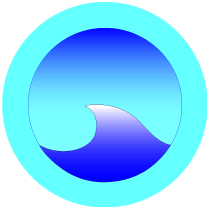Objectives and Approach
The main objective of the ADIOS project is to assess the impact of atmospheric deposition on the open Mediterranean Sea with respect to natural processes and human activity. Progress in resolving this major issue will be achieved through:
- the basin-wide characterisation of atmospheric deposition,
- the determination of levels of natural and anthropogenic compounds in the different compartments of the ecosystem, and
- the study, in the water column and the deep sediments, of their effects on major biogeochemical processes and biota.
The project will consider simultaneously the impact and fate of three groups of pollutants (potentially threatening metals, organic substances and artificial radionuclides), nutrients (nitrogen, phosphorus, iron) and key elements (organic and inorganic carbon). Interdisciplinarity research will integrate field sampling and measurements, laboratory experiments, remote sensing and modelling:
- Long-term (1 year) deployment of equipments (atmospheric network; moored sediment traps and current meters) and seasonal surveys (cruises) will permit for the first time to collect samples and to measure, in 9 representative land-based around the entire Mediterranean Sea and 2 open ocean experimental sites (centre of the Eastern and Western Mediterranean basins), core parameters as well as biogeochemical processes in the atmosphere, the water column and the sediments. Pollutant levels and ecotoxicological effects will be determined in deep Mediterranean biota. Where appropriate,integration of new data sets with existing ones (retrospective analysis) will represent a milestone for the assessment of past and present variability.
- A Fast Response Experiment will check quasi-contemporarily the impact of a natural deposition event and its phasing out to detect and quantify the effects on the biology of the pelagic food web and the biogeochemistry of the upper water column.
- In vitro experiments will assess dissolution capacity of aerosols and ioavailability of associated pollutants.
- Basin scale remote sensing (SeaWiFS) will permit to characterise aerosols categories, to test the triggering effects of atmospheric deposition (e.g. dust events) on blooms, and to bring field observations into a broader context.
- Using and enhancing existing numerical tools will permit to understand, hindcast and predict the evolution of the Mediterranean open ecosystem. Meteorological, dynamical and ecological models will be employed to quantitatively and qualitatively synthesise the applied knowledge base, and will be used as tools for the prediction of ecosystem integrity, both in its functional and structural aspects. Scenarios will be described to estimate ecosystem sensitivity to atmospheric deposition of pollutants and nutrients.
Return to the home page of ADIOS by clicking on the icon at the top of this page.
